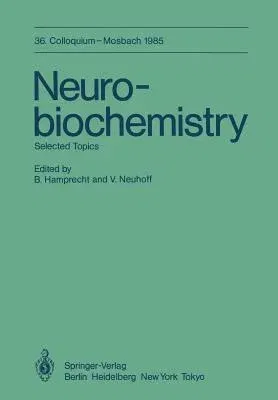Neurobiochemistry: Selected Topics (Softcover Reprint of the Original 1st 1985)Paperback - Softcover Reprint of the Original 1st 1985, 17 November 2011

Qty
1
Turbo
Ships in 2 - 3 days
In Stock
Free Delivery
Cash on Delivery
15 Days
Free Returns
Secure Checkout
Part of Series
Colloquium Der Gesellschaft Für Biologische Chemie in Mosbac
Part of Series
Colloquium Der Gesellschaft F R Biologische Chemie in Mosbac
Part of Series
Colloquium Der Gesellschaft Fur Biologische Chemie in Mosbac
Print Length
213 pages
Language
English
Publisher
Springer
Date Published
17 Nov 2011
ISBN-10
3642709427
ISBN-13
9783642709425
Description
Product Details
Book Edition:
Softcover Reprint of the Original 1st 1985
Book Format:
Paperback
Country of Origin:
NL
Date Published:
17 November 2011
Dimensions:
24.41 x
16.99 x
1.22 cm
ISBN-10:
3642709427
ISBN-13:
9783642709425
Language:
English
Location:
Berlin, Heidelberg
Pages:
213
Publisher:
Series:
Weight:
367.41 gm

